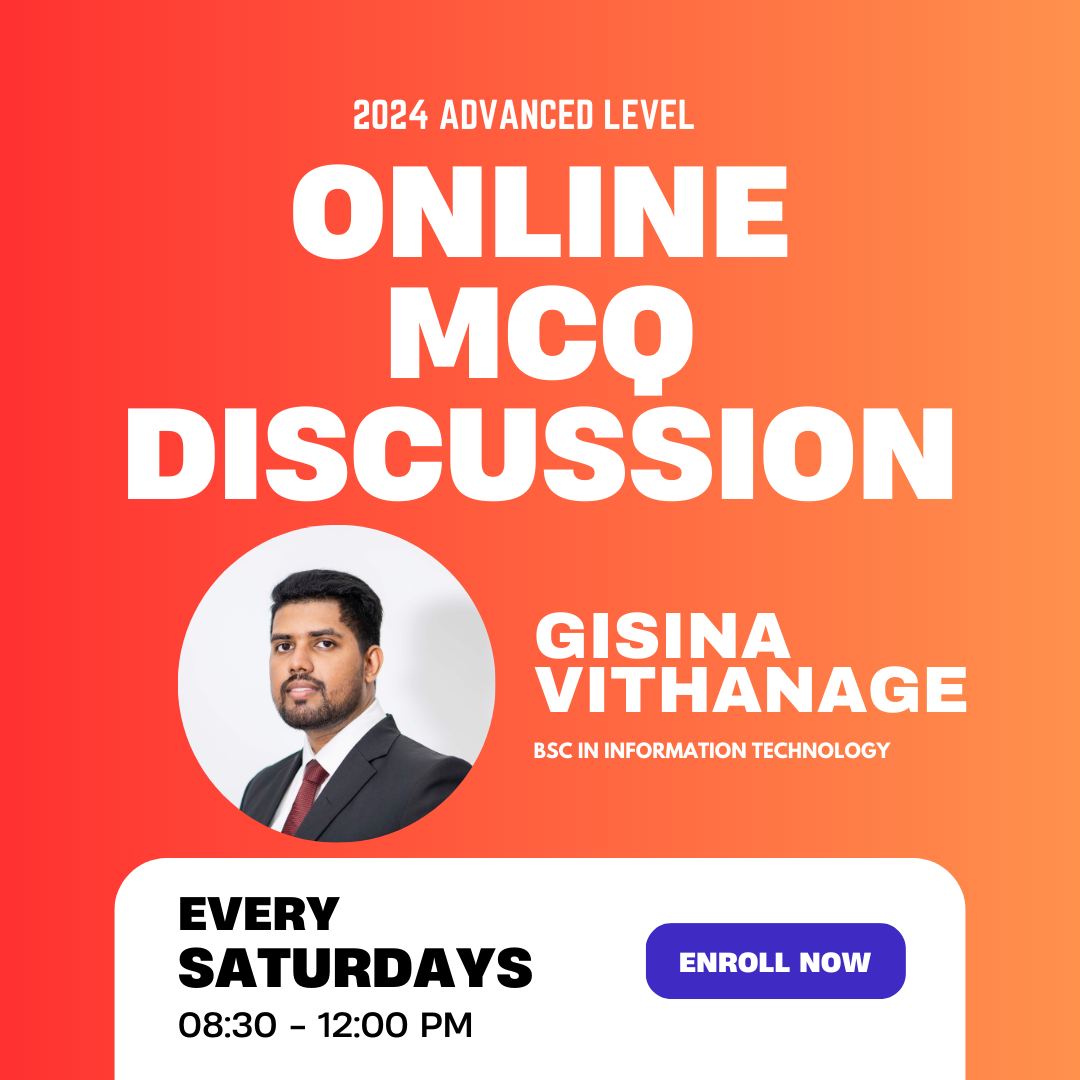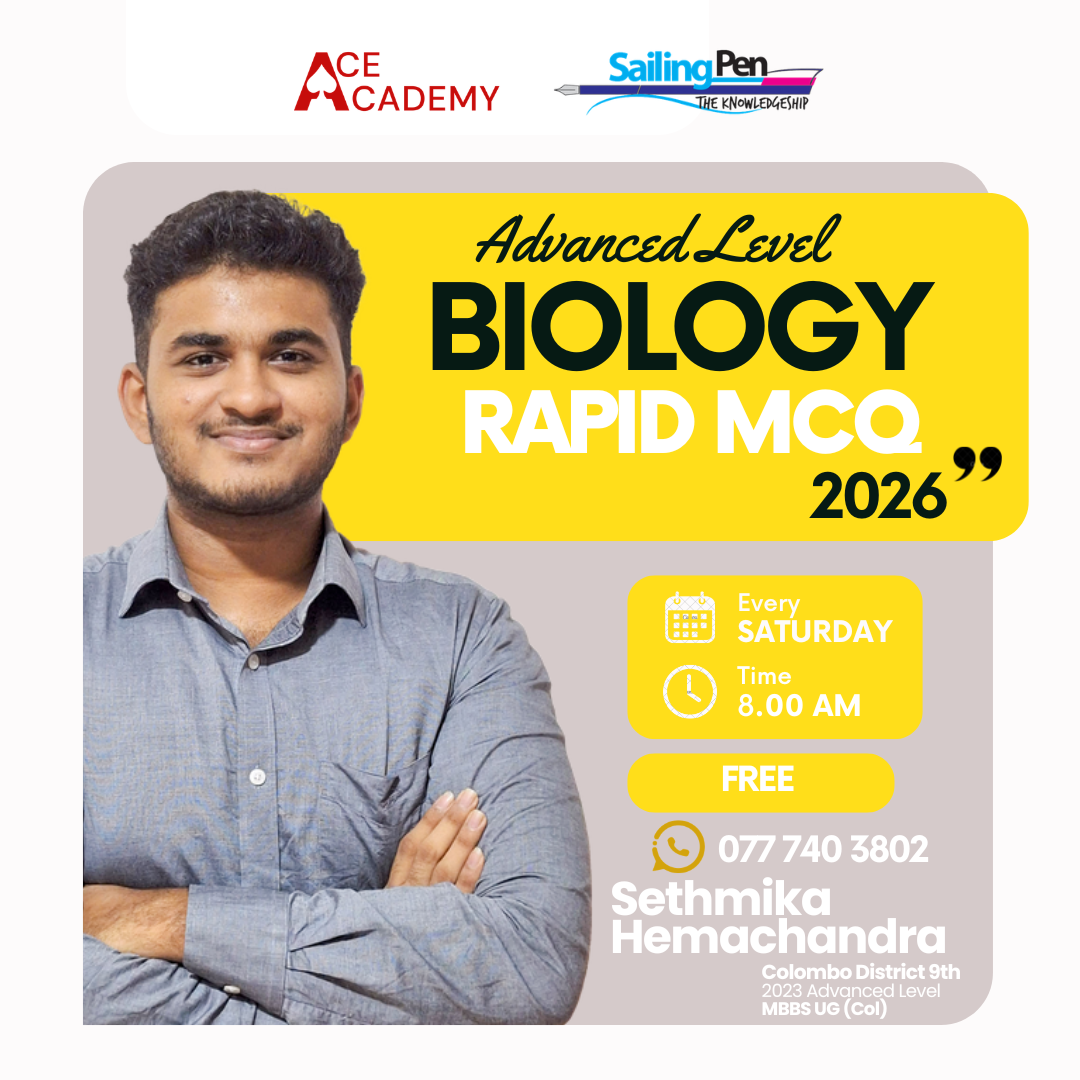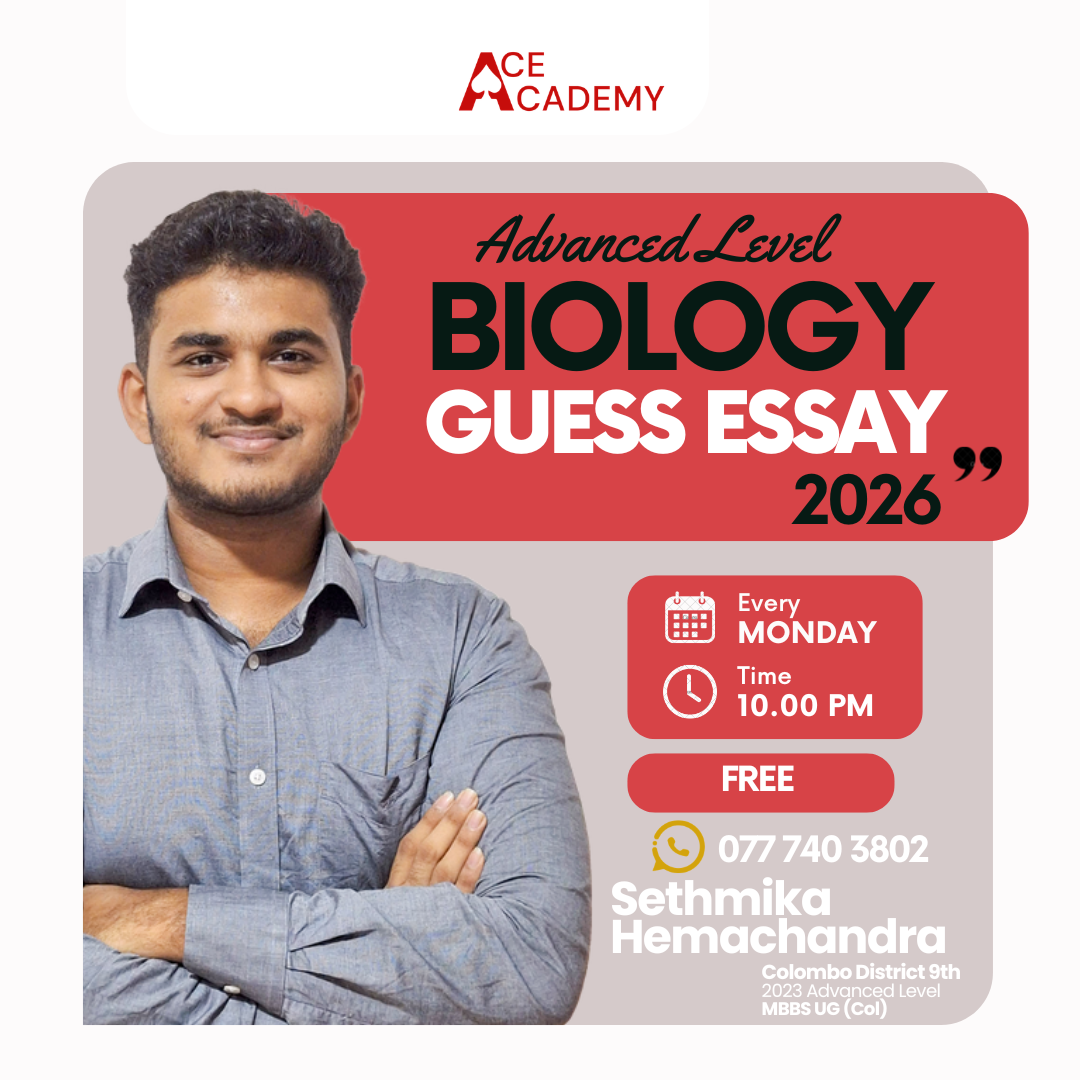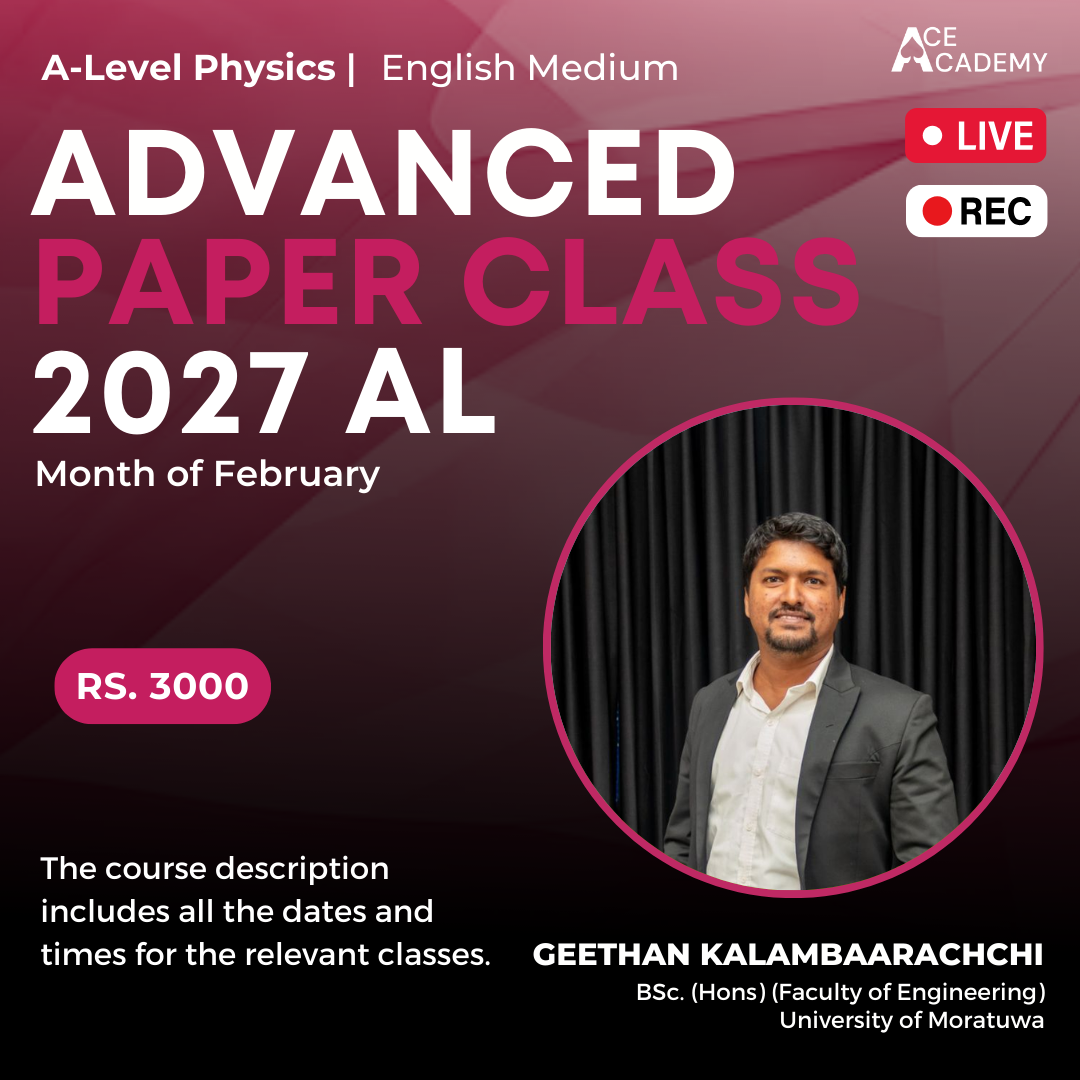2024 A/L ICT MCQ DISCUSSION | AUGUST | GISINA VITHANAGE
2011 A/L PAST PAPER MCQ PAPER DISCUSSION 2023 A/L PAST PAPER MCQ PAPER DISCUSSION
- 12 Users Enrolled
- Created by: Gisina Vithanage
- Last Updated: 6th August 2024
- English/සිංහල
Overview
Don't know how to join ZOOM meetings or watch recordings? Contact Us or find out how by watching this video.
Description
Class Discussion: Analyzing Past Paper MCQs - Theory and Practice
Class Description:
In this class, we will engage in an in-depth discussion on multiple-choice questions (MCQs) from past exam papers. The focus will be on understanding the theoretical components behind the questions, strategies for tackling MCQs effectively, and time management techniques. We will also compare MCQs with other types of exam papers and explore methods for predicting common question patterns.
Learning Objectives:
By the end of this class, students will be able to:
1. Identify and understand the theoretical concepts behind MCQs.
2. Develop effective strategies for answering MCQs.
3. Manage time efficiently during an MCQ-based exam.
4. Compare and contrast MCQs with other types of questions.
5. Predict common themes and patterns in MCQs.
Session Outline:
1. Introduction to MCQs
- Definition and characteristics of MCQs
- Types of MCQs (single answer, multiple answers, true/false, matching)
- Importance of MCQs in exams
2. Theoretical Components of MCQs
- Breakdown of theoretical concepts commonly tested
- Analysis of sample questions to identify underlying theory
- Discussion on how theoretical knowledge is applied in MCQs
3. Strategies for Tackling MCQs
- **Reading the Question Carefully:** Importance of understanding what is being asked
- **Elimination Method:** Narrowing down the choices by eliminating incorrect options
- **Educated Guessing:** Making an informed guess when unsure
- **Keyword Identification:** Spotting key terms that hint towards the correct answer
- **Avoiding Common Pitfalls:** Recognizing and avoiding trick questions and distractors
4. Step-by-Step Approach to Answering MCQs
- **Step 1:** Read the question thoroughly and understand the requirement
- **Step 2:** Read all the options before choosing an answer
- **Step 3:** Use the elimination method to discard implausible options
- **Step 4:** Re-read the question and the remaining options
- **Step 5:** Choose the best possible answer
- **Step 6:** If unsure, mark it for review and move on, returning if time permits
5. Time Management Techniques
- **Initial Survey:** Quickly survey the entire paper to gauge the difficulty level
- **Allocate Time:** Divide time according to the number of questions
- **Pace Yourself:** Avoid spending too much time on any one question
- **Review:** Allocate time at the end to review and revise answer
7. **MCQ Predictions**
- **Common Themes:** Identifying recurring topics and themes in past papers
- **Pattern Recognition:** Noticing patterns in the way questions are framed
- **High-Frequency Topics:** Focusing on topics that frequently appear in exams
- **Analyzing Trends:** Reviewing past papers to understand examiner preferences
8. Instructions for Students:
1. **Preparation:** Review past MCQ papers and study the underlying theory for each question.
2. **Participation:** Actively engage in the discussion, share insights, and ask questions.
3. **Practice:** Apply the step-by-step approach to a set of practice MCQs during the session.
4. **Reflection:** Reflect on the strategies discussed and identify personal strengths and areas for improvement.
5. **Follow-Up:** Continue practicing with past papers and utilize the discussed strategies to enhance performance.
This discussion aims to equip students with the skills and strategies necessary to excel in MCQ-based exams, ensuring a solid understanding of theoretical concepts and efficient exam techniques.
Recently Added Courses
About the Instructor
I am a professional ICT Lecturer and, I am dedicated to revolutionizing the ICT education by providing innovative and comprehensive learning solutions for students, professionals and organizations.With a focus on equipping learners with the necessary skills and knowledge to excel in today’s rapidly evolving digital landscape to strive to be destination for ICT education.I completed my bachelors degree in Information Technology Specializing in Computer Systems and Network Engineering at Sri Lanka Institute of Information Technology (SLIIT).






.png)
